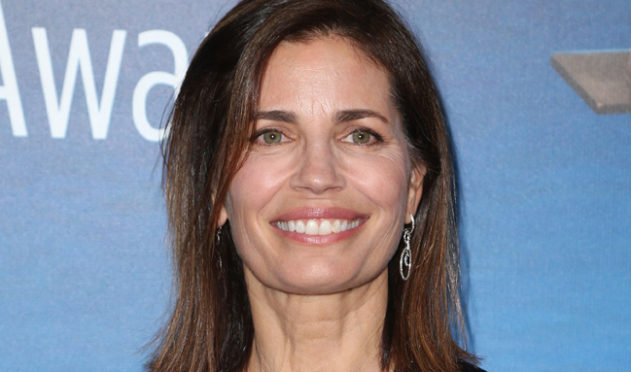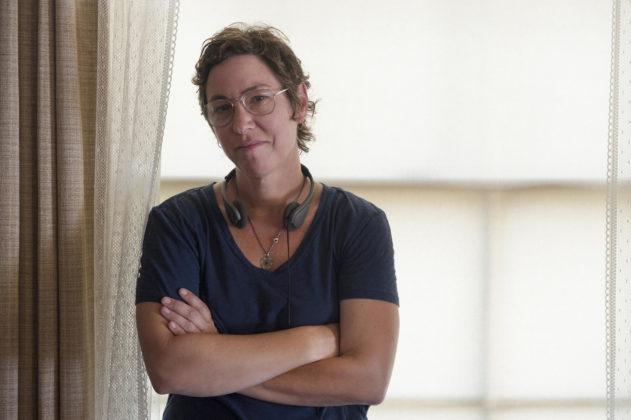TALKING with Lisa Cholodenko and Susannah Grant of “Unbelievable,” which premieres tomorrow on Netflix
Marie Adler’s story about an intruder raping her in the middle of the night seemed incredible. So impossible, in fact, that she later retracted her story, earning her the enmity of police, her friends and the entire community.
The thing was, Marie wasn’t lying. The teen had, in fact, been violated in her own home by a man who bound her and took photos of her body amidst hours of torture. But so careful was the assailant that he left no DNA or other forensic evidence behind. With nothing to go on, the police “convinced” Marie that she had made the whole thing up.
This confounding tale has been dramatized in the new Netflix limited series, “Unbelievable,” which debuts Friday simultaneously in nearly two-hundred countries.
“Every time you hear a woman discounted, you’re hearing it from the man who is discounting her, and he tends to be the focus of the conversation,” said Susannah Grant, the show’s creator and head writer. “So the idea of taking that conversation and putting it in the mouth of the person who is being disbelieved, and letting people walk that journey, could hopefully speak for the millions of people who are disbelieved.”
The Oscar-nominated Grant (“Erin Brockovich”) saw the potential in making a fictionalized version of Marie’s story and approached Michael Chabon (“Wonder Boys,” “Spider-Man 2”) to collaborate on a multi-part script. Luckily, Katie Couric also wanted to bring the story to the screen and thus helped get the ball rolling.
The eight-part series is based on a lengthy article called “An Unbelievable Story of Rape” by T. Christian Miller and Ken Armstrong, which won a Pulitzer Prize. As the series begins, Marie (Kaitlyn Dever) shakily relates the details of her attack to authorities and friends, who are sympathetic at first but later turn on Marie when, under pressure, she recants.
As Marie’s life in Washington state unwinds, the series jumps ahead two years, as a pair of detectives in Colorado (Toni Collette and Merritt Wever) begin investigating a disturbing series of home invasions and rapes. How the two narratives eventually intertwine would be, well, seemingly unbelievable were it not also true.
“Facts sometimes have to change because life is not lived in a narrative structure,” Grant said of the need to take a certain degree of dramatic license with the series’ scripts. “We reached out [to the real-life parties] and made our intentions clear, because if you’re dramatizing somebody’s life, you always want to make it clear to them that you’re coming at it with a desire to tell the truth of their experience.
“We retained some key biographical facts and then did some fictionalization of them,” Grant said of the two detectives portrayed by Collette and Wever. “[There was] no need to expose their inner lives to the world. But we were really faithful to the work they did, the steps they took and the dogged determination they brought to the work and what it cost them.”
“There was a great dynamic that [the two detectives] actually had a chance encounter early in their careers,” added executive producer Sarah Timberman (“Elementary”). “Those were things in the truth of the story that made for great drama.”
Lisa Cholodenko (“The Kids Are All Right”) directed the first three episodes of the series, establishing an artistic template and working to hire the right personnel for the show.
“To stay true to myself and the scripts and the article—to not sensationalize it but at the same time make it entertaining and compelling—I felt was a tall order,” Cholodenko said. “We found wonderful actors and we brought the right people in to create that environment that we could do it in.”
“There’s something descriptive that Lisa uses sometimes, which is questioning whether something might feel overly determined,” added Timberman. “I would say there’s nothing overdetermined about Susannah’s writing approach to this material and Lisa’s direction approach.”
“I’m proud of it, but it took me a minute to say yes,” added Cholodenko.
Cholodenko considered helming the entire series but soon realized the material would be better served if she handed off directing duties to Michael Dinner for the middle section, with showrunner Grant herself handling the final two episodes.
“I decided where I could be most effective was in establishing the show, bringing the look and setting a tone and a template,” Cholodenko said of her choice to step aside from the director’s chair after the first three episodes.
“Michael Dinner was ideal for the second block [because] he had directed Kaitlyn Dever years back on our series ‘Justified’ when she was thirteen or fourteen,” added Timberman of the earlier series that she also produced.
“[Dinner] said directing [of] Kaitlyn, you just get out of her way,” added Grant of their young lead actress.
A year ago, while in post-production on “Unbelievable,” the creators had what they described as the “surreal experience” of editing their show while, on an adjacent screen, they beheld the confirmation hearings of Supreme Court Justice Brett M. Kavanaugh, who denied accusations of sexual assault in his young adulthood brought by Stanford professor Christine Blasey Ford.
“It was incredibly frustrating to hear the same kinds of people give voice to the same kind of harmful, destructive myths surrounding sexual assault in terms of memory and how it functions in the wake of a trauma,” Timberman said. “People we all know and love were saying, ‘How could [Ford] not remember who was in the room and how she got home?’”
“And the brain science is firmly established on this. It’s not under question at all,” added Grant. “Memories fragment when people go through something dreadful. Blank spots appear just for self-preservation. And people don’t know that. [I hope] people pick that up from the show.”
The show’s creators have worked on “Unbelievable” for nearly three years, and are excited for the show to debut worldwide and continue an important conversation.
“There is just an authenticity to the piece, and I think it really honors the source material and the people, but we took the responsibility of the story seriously,” Timberman said.
“Unbelievable” premieres on Netflix on Friday.
news via inbox
Nulla turp dis cursus. Integer liberos euismod pretium faucibua




